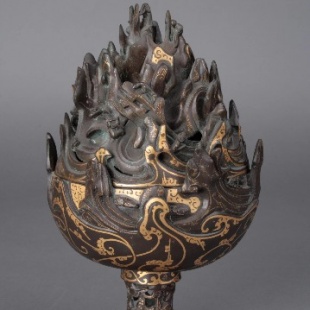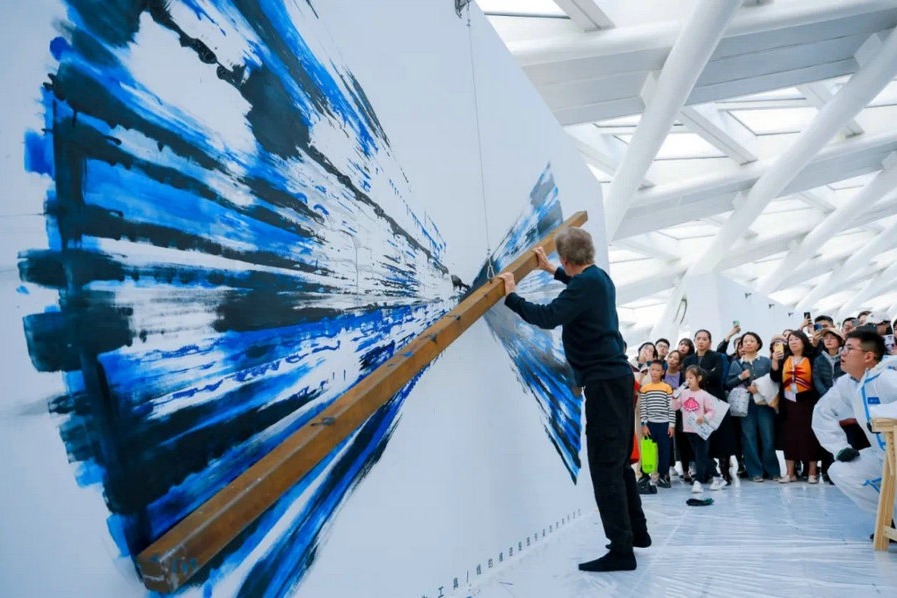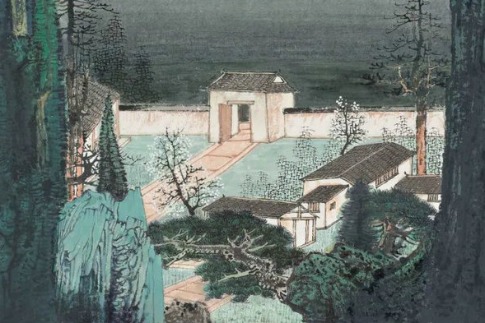The past continues to shape our future
Core ideas of Chinese philosophy examines how major questions were addressed, Li Yingxue reports.


A rubbing of its base shows 122 ancient characters that tell a story.[Photo provided to China Daily]
"The ethics knowledge system shaped by the Western academic community, which we often encounter in bookstores today, primarily focuses on questions about what is right and wrong. However, I have always hoped that what I study will be connected to my life. I wondered if there is a way to find anchoring power for life within ethics, enabling us to maintain certainty and composure in the face of a world filled with immense uncertainty and randomness."
As nowadays there is a growing interest among people in exploring museums, Zhang finds that, in his own experience, when viewers encounter artifacts that resonate with their thoughts and beliefs, a remarkable connection occurs with the historical context behind those pieces.
"This connection can extend to the emotions and sentiments of the artifacts' patrons, creators and artists, evoking a heartfelt and profound resonance. I am enthusiastic about sharing this enriching experience with friends who might find it equally meaningful. This passion serves as an additional driving force behind the creation of this book," Zhang explains.
Cheng Lesong, head of Department of Philosophy and Religious Studies, Peking University, comments that the book utilizes museum artifacts to reconstruct resonant spiritual moments. Within them, there are stories of individuals and the worlds they inhabited.
"It is precisely the richness of experience in the modern world that has led to redundancy and scarcity in our expressions," Cheng says. "We have come to realize that 'objects' might be a form of expression, and we sense that language alone might no longer suffice to convey our thoughts and emotions."
He thinks that the book ingeniously connects the expressions of thoughts through "objects", creatively restoring a space for ideas.
"Through objects Zhang Xi's book helps us reexamine our spiritual state, providing a pathway to open our inner world while ensuring its accessibility to both the general public and scholars alike," Cheng says.
This book delves into past events, yet every aspect of its content serves as a guiding light for the present, nurturing and enriching contemporary readers, Zhang says.
"My aspiration for this book is to foster reverence, love and confidence in today's readers toward our civilization's historical journey and the profound essence of our national culture," he adds.






































